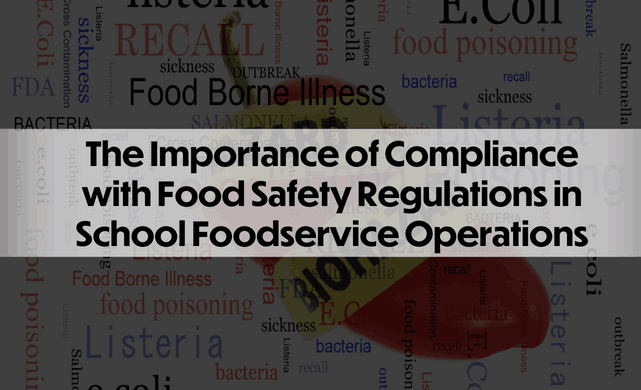School foodservice operations play a crucial role in providing healthy and nutritious meals to students, but they also have a responsibility to ensure that all food safety regulations are met. Foodborne illnesses can be particularly dangerous for children, so it's essential that schools take food safety seriously and implement policies and procedures to protect the health and wellbeing of students and staff.
The first key consideration is employee training. All foodservice staff should receive training on food safety and sanitation, including hand washing, food storage, and cooking temperatures. Schools should also regularly monitor staff to ensure that they are following established food safety procedures.
Another important factor is the equipment and facilities used in school foodservice operations. These should meet all food safety standards, including proper refrigeration, food storage, and sanitation. Schools should regularly inspect and maintain their equipment to ensure that it is functioning correctly and meeting all relevant regulations.
Food procurement is also critical. Schools should source their food from reputable suppliers who follow established food safety standards and maintain records of all food deliveries. Regular inspections of food products should also be conducted to ensure that they are safe for consumption.
In addition to food procurement, food preparation is a critical stage in the food safety process. Schools should implement strict protocols to ensure that all food is handled, cooked, and served safely. Menu planning should also take food safety into account and consider factors such as the seasonality of ingredients, food allergies, and dietary restrictions.
Last but not least, schools should keep detailed records of all food deliveries, food preparation, and food storage, as well as any incidents related to food safety. This information should be regularly reviewed and used to inform ongoing food safety initiatives.
Ensuring compliance with food safety regulations is a critical aspect of school foodservice operations. Schools should take a comprehensive approach, implementing strict policies and procedures, training their staff, and using high-quality equipment. By doing so, schools can provide healthy and nutritious meals to students while also protecting their health and wellbeing.


















